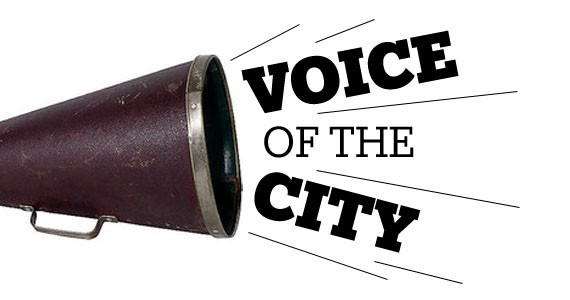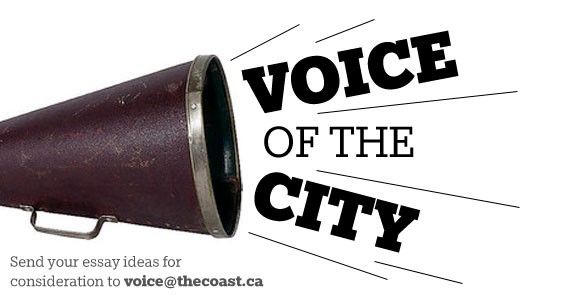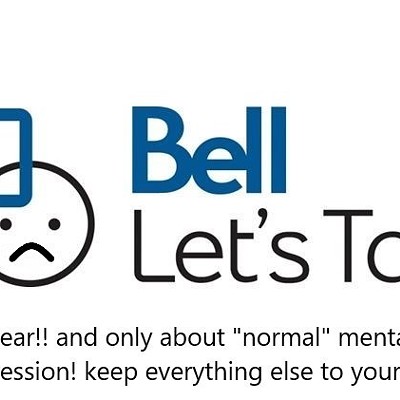I used to live with a feminist. I would laugh and shake my head when she went off on tangents about equality and sexism, thinking it was all in her head. I was quite happy with the status quo and saw no reason to waste my time fighting against something invisible and quite possibly non-existent.
Imagine my surprise when someone laughingly called me a feminist as I ranted about the lack of female representation onstage at an awards show last year, to which I replied, obtusely, "I'm not a feminist, I just think it should be fair." Or when I spoke out online this summer about Chris Brown coming to Halifax, and was called a "feminazi."
Without even realizing it, I had begun to care about women's issues. A lot.
I hadn't meant to do it, and I certainly hadn't started thinking differently on my own. The thing about change, whether it's of a personal nature or in a particular industry or segment of society, is that it almost always requires some kind of outside force. We tend to stick with what we know until we're given a reason not to.
Halifax has been on the receiving end of a lot of these reasons for change lately. With the Rehtaeh Parsons case fresh on everyone's minds, it's no wonder we've become increasingly vocal about sexism in our city, whether blatant or perceived.
We find ourselves asking how marketing and public relations teams everywhere from Mount Saint Vincent University, with its billboard touting a Women's Wall of Honour but showing three smiling men, to Halifax Harbour Bridges with its "Bridget" campaign using thinly veiled double entendres and the sexualization of women, can possibly think that these campaigns are acceptable in modern society.
We imagine a room full of Neanderthal-like men and repressed women eagerly objectifying and devaluing women in hopes that the patriarchy will live on and sex will continue to sell.
The reality, I think, is far less nefarious.
Last week, two ad campaigns gained international attention. First, a government sexual consent ad that screamed "Do Me" in big letters. Then, Mic Mac Mall pulled their now infamous back-to-school ad campaign after receiving almost universally negative feedback. Their original explanation, that the campaign was meant to be "lighthearted" and "humourous," was decried across the board and they soon pulled the ads altogether with an apology that was met by many with a "too little, too late" attitude.
I'll admit that I was initially one of the many who wanted to hold the misstep against the mall in perpetuity, but the more I think about it, the more I see the whole mess as an indicator of positive change for our city.
Change is hard, and people, generally speaking, don't like risks. When we start talking about institutional decisions, this risk aversion is even more entrenched.
The reality is that for much of history, what we recognize now as sexism has simply been the accepted norm. It's no surprise that for many years, advertising that plays to this sexist ideal has been effective and successful (and gone largely unchallenged) in Halifax and beyond. As much as marketers and public relations professionals like to think of ourselves as being innovative, the truth is that most often, we're really just finding new ways of sending the same message that's worked for every other campaign.
So can we blame these teams for perpetuating sexist ideals? Yes and no.
In a perfect world, we would all be sensitive to privilege and oppression, recognizing when we're encouraging negative and harmful stereotypes in the name of the dollar, but the reality is that until we're given an outside nudge, we're unlikely to do so.
In Halifax, that outside nudge has arrived and is growing more insistent as time goes on. The conversation has started in earnest and it's important that we keep talking about these things, with the hope that someday we can have a new norm.
In the meantime, though, we need to be gracious when missteps are made and then fixed. The people behind these campaigns generally aren't horrible sexist monsters--- they're just carrying on with what's worked before.
Let's continue to encourage them to find a new angle, because the same old messages don't work here anymore. Halifax is waking up.
Jen Ochej is the social media manager at Broadview Strategy Group, a national public relations firm, and the editor at local music blog Sea Legs Collective. Follow her @jenochej. She is also interviewed about co-organizing Love Does on page 8.
Send your essay ideas for consideration to [email protected]
















